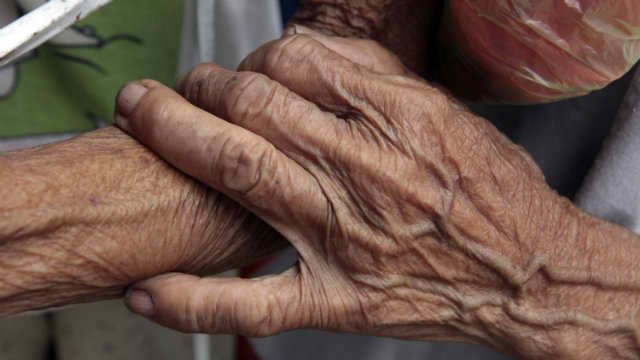SUMMARY
This is AI generated summarization, which may have errors. For context, always refer to the full article.

MANILA, Philippines – How is an urbanizing world with an ever-changing demographics linked to health care?
An increasingly urban and graying population puts a strain on health resources, and according to Charles Yu, a professor at the De La Salle Health Sciences Institute, the Philippines is already starting to feel its effects.
Yu was one of the speakers at the Health and Social Policy panel of the Harvard Project of Asian and International Relations’ (HPAIR) 2015 Asia Conference held at Makati Shangri-La. The conference runs from August 20 to 24.
The panel, titled “The transformation of healthcare from urbanization and changing demographics,” presented the problems of urbanization and possible solutions that it generates.
Yu focused on the challenges of an aging population, a result of the increasingly urbanizing world. Urbanization has reduced childhood mortality, and has also reduced fertility rates and delayed mortality, with the last one giving rise to an elderly population.
Age pyramid shifts to rectangle
He noted that for many countries the age pyramid had become a rectangle — the population distribution between young and old was becoming relatively equal.
This, according to Yu, presents a problem since healthcare for the elderly is more expensive compared to those under 55 years old. The elderly are more susceptibie to complex diseases like diabetes and pneumonia.
Furthermore, an aging population causes manpower shortage, with less and less doctors and nurses to care for the elderly. This is a problem already experienced by developed nations, such as Japan and Israel. These two countries are currently hiring Filipinos to add to their ranks of diminishing healthcare workers. (READ: Where are the healthworkers?)
Urbanization has also changed work culture, giving birth to some adverse health effects. Yu cited Japan’s problem with “karōshi,” which means “death from overwork.”
Yu also talked about “a tale of two cities” — some of the more prosperous areas of mega-cities are able enjoy top facilities, but other areas cannot. This is the same for doctors who would rather stay in the metropolitan area than move to rural communities.” The public hospitals everywhere are straining from the tsunami of sick people, especially the poor and the elderly,” Yu said.
PH and urbanization
These effects of urbanization are already being felt in the Philippines.
The leading cause of death in the Philippines has changed over the years, from infectious diseases to heart disease. Such shift indicates that lifestyle diseases, which are highly preventable, are now a greater threat to Filipinos.
Yu also observed that call center agents tend to be more vulnerable to diseases like HIV-AIDS and tuberculosis, resulting from increased levels of work stress paired with high intake of alcohol and caffeine.
Although urbanization has created new difficulties, is has also generated some innovations. For example, computers and information technology have made doctors’ work easier and have made information more accesible to the public.
So what makes for an ideal health care in an urbanizing world?
First, “It has to be paid,” Yu stressed. There is a need for health care to be “effective, affordable, accessible, equitable with no one left behind.” It must also be compassionate, he added.
To end his talk, Yu shared the experience of Okinawa, Japan. There, he said, the usual components of a healthy diet and exercise were supplemented by a concept called moais. Much like the concept of bayanihan in the Philippines, moais emphasizes the value of community. In Okinawa, the community comes together to reduce the stress caused by disease. (READ: Caring for elderly, a community activity)
“The problem of one is the problem of all,” Yu said — Rappler.com
Bea Orante is a Rappler Intern
Add a comment
How does this make you feel?
There are no comments yet. Add your comment to start the conversation.